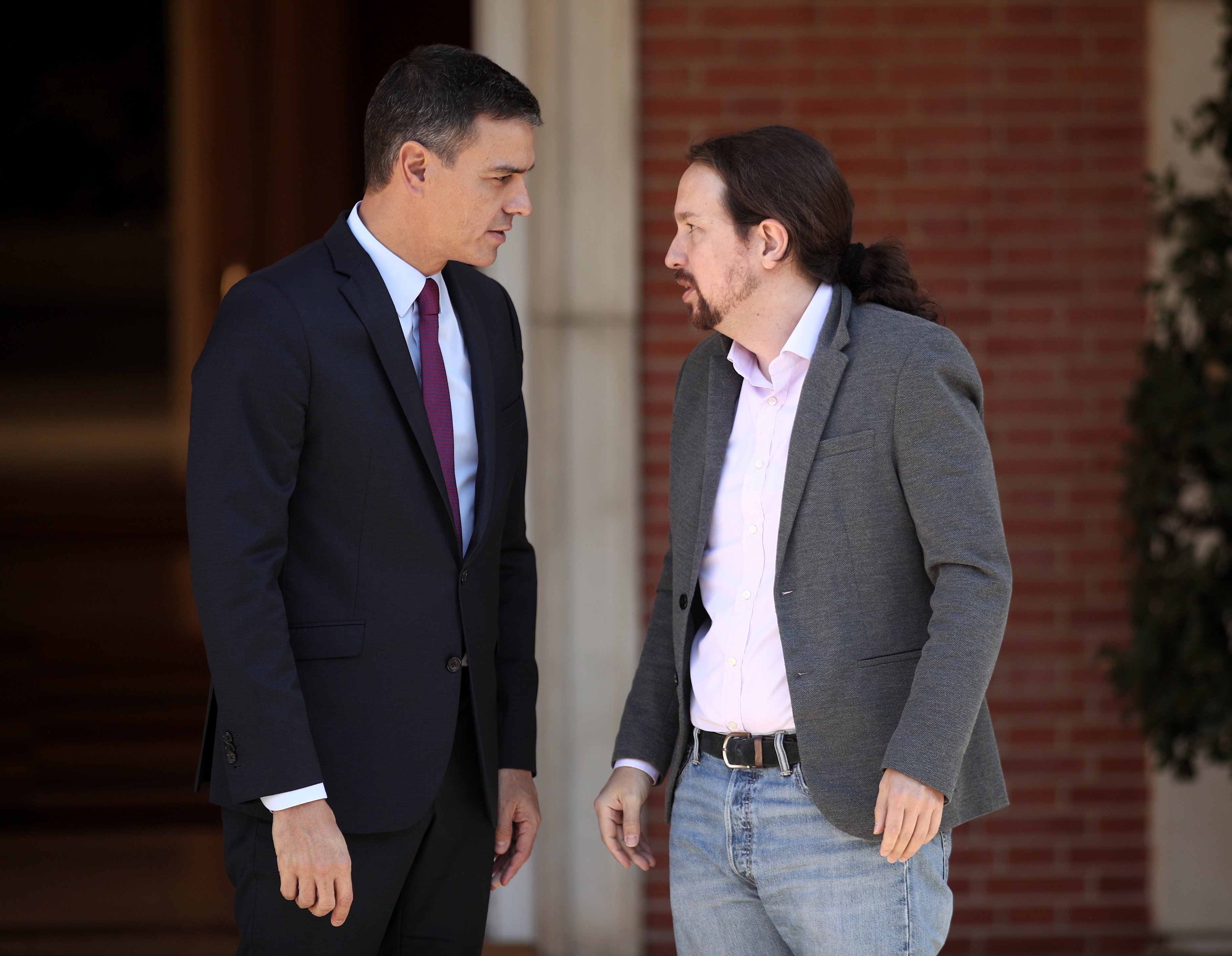You don't have to wait for the electoral bloc buried in Spanish public TV news to know that Catalonia is in an election campaign. It's there in all the TV news headlines - not just Catalan, but Spanish as well. On Monday evening, at 8:56pm, just before the main TV news programmes opened, the Spanish government released a press statement: that they will decriminalize the crimes affecting expression that have been punished with prison sentences like that of the Catalan rapper Pablo Hasél. Just two hours earlier, a manifesto by 200 well-known Spanish artists had been published in support of Hasél. And just an hour earlier, the Unidas Podemos group had announced a press conference the next day in Congress, precisely to address this hot issue. The most controversial rap was not the promotional tune put out by Ada Colau and the Comuns.
And the next day, predictably, a new pitched battle broke out between the two partners in Spain's governing coalition, the PSOE and Unidas Podemos. The morning began with Pablo Iglesias's party presenting its own bill, clearly spelt out in contrast to the vagueness of the Socialists, specifying the crimes that were to be removed from the Penal Code (including insults to the crown). The PSOE's response came from the press room in the Moncloa government palace. Spokesperson María Jesús Montero warned that everything would be managed from the government, not from Parliament, and that it would be in the hands of two ministries in Socialist hands: justice and interior. It also cooled off the immediacy, framing the change as part of the general reform of the Penal Code (which is also dealing with changes to the sedition and rebellion laws). And she accused Podemos of "wanting to make capital on some issues because we have elections on Sunday."
In just a year of coalition rule, Spaniards have seen the two partners engaged in all kinds of friction, manoeuvres, parallel messages and tricks. The Catalan election campaign, which generates an expansive wave in Madrid, has only amplified all this. There is an awful lot at stake for both parties. Pedro Sánchez has made an all or nothing move in shifting Salvador Illa from the health ministry to place him at the head of the Catalan Socialist candidacy. Pablo Iglesias is out to save the furniture, after the disastrous Podemos results in the Basque and Galician elections last year, and his already limited power of influence at the cabinet table is at risk. And the two parties' ideas about Catalonia, their approaches to the political conflict and to the political prisoners, are substantially different.
Already, in the pre-campaign, Pablo Iglesias opened a Pandora's box in an interview with the public affairs show Salvados, comparing the situation of president Carles Puigdemont with that of Spain's Republican exiles in the Civil War era. In the days that followed, not only did he not back down, but he warned that, unlike some others, he would not take part in a campaign to "criminalize" the independence movement. It was prime minister Pedro Sánchez himself who rebutted the words of his second-ranked deputy PM, from Barcelona, where he was hosting a PSOE federal council meeting. "The PSOE has survived the real exile," he replied. Spokesperson Montero underscored the same message: Puigdemont "broke the law."
That was just a prelude, setting a tone which has been repeated in recent days, after the Podemos leader complained in an interview with Catalan newspaper Ara that Spain does not have a "situation of full democratic normality", because of the existence of political prisoners and exiles. He spoke of the "exceptional situation" at this time when, with regard to "the leaders of the two parties that govern Catalonia, one is in prison and the other in exile." As on some previous occasions, the person correcting him was first deputy PM Carmen Calvo, who replied that "everyone who can and wants to" is participating in the 14th February campaign with full democratic normality. If anyone is not doing so, retorted the Socialist number two in reference to Puigdemont, "it is because he fled his country."
Para PODEMOS esto NO ES NORMAL.
— PODEMOS (@PODEMOS) February 10, 2021
Para otros es la normalidad.
Nosotros no nos conformamos.
¿Y tú? pic.twitter.com/vhaDN1t5lm
Podemos video and tweet sent this week: "For Podemos, this is not normal. For others, it is. We won't settle for it. And you?"
And in between, other issues have heaped further tension on the relations between the two partners in the Moncloa palace, such as the Trans Law that confronts different visions of feminism - for example, the views of Podemos minister Irene Montero and those of Carmen Calvo herself. After the Catalan elections, these profound differences will remain. The 14th February campaign has amplified them and the results of the Catalan elections may end up deepening them. Without even taking into account the correlation of parliamentary forces that emerges and the possible government alliances that will be outlined in Barcelona's Palau de la Generalitat. Pedro Sánchez has gambled everything on displacing ERC; Pablo Iglesias, on the other hand, on weaving alliances with the pro-sovereignty parties. The Catalan elections have - and will have - their effect on the Moncloa.

